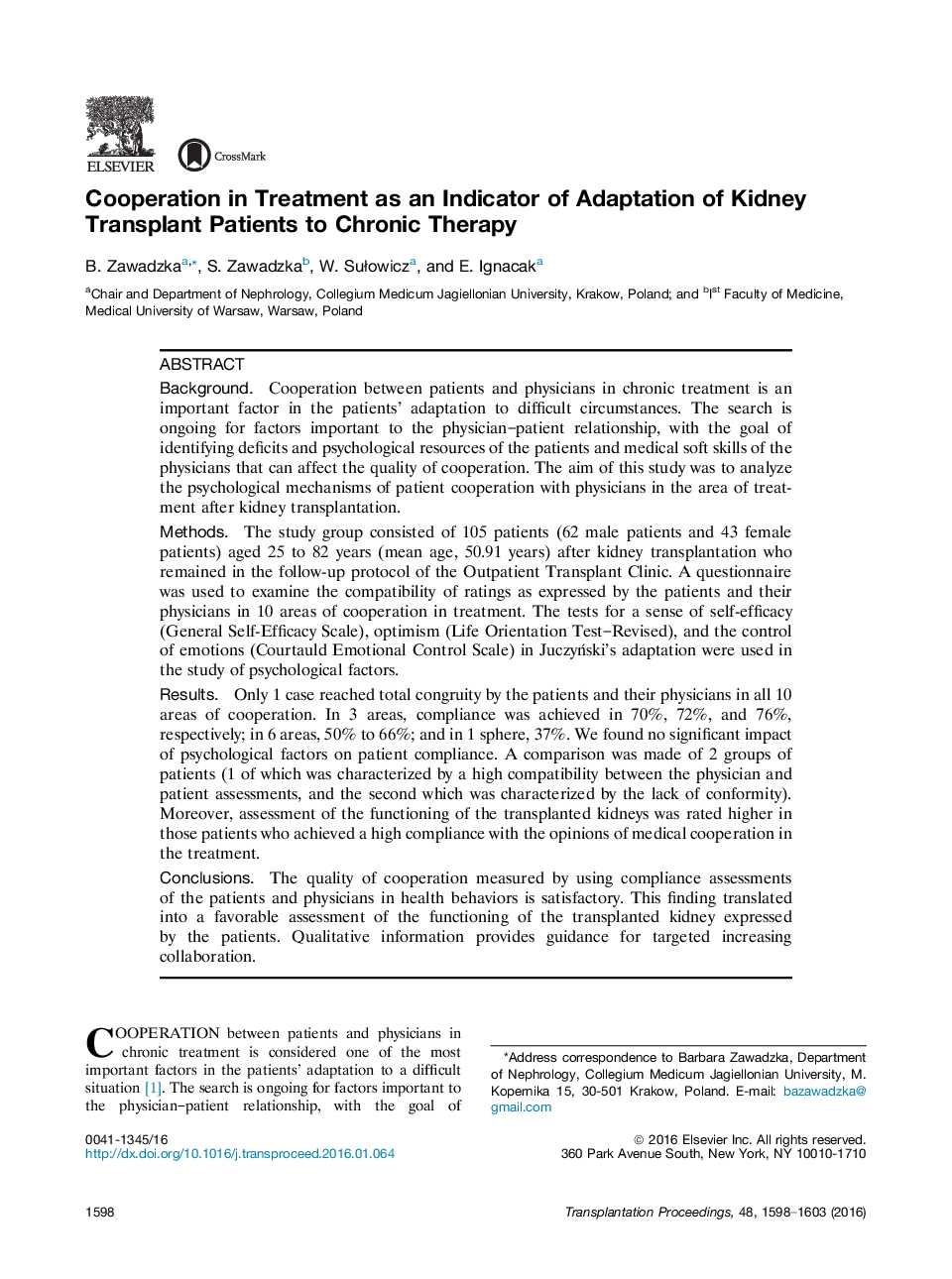| کد مقاله | کد نشریه | سال انتشار | مقاله انگلیسی | نسخه تمام متن |
|---|---|---|---|---|
| 4256079 | 1284510 | 2016 | 6 صفحه PDF | دانلود رایگان |
• The influence of personality factors on health behaviors was examined
• The relationship between optimism and cooperation in treatment was obtained
• Emotional control is combined with health behaviors
BackgroundCooperation between patients and physicians in chronic treatment is an important factor in the patients' adaptation to difficult circumstances. The search is ongoing for factors important to the physician–patient relationship, with the goal of identifying deficits and psychological resources of the patients and medical soft skills of the physicians that can affect the quality of cooperation. The aim of this study was to analyze the psychological mechanisms of patient cooperation with physicians in the area of treatment after kidney transplantation.MethodsThe study group consisted of 105 patients (62 male patients and 43 female patients) aged 25 to 82 years (mean age, 50.91 years) after kidney transplantation who remained in the follow-up protocol of the Outpatient Transplant Clinic. A questionnaire was used to examine the compatibility of ratings as expressed by the patients and their physicians in 10 areas of cooperation in treatment. The tests for a sense of self-efficacy (General Self-Efficacy Scale), optimism (Life Orientation Test–Revised), and the control of emotions (Courtauld Emotional Control Scale) in Juczyński's adaptation were used in the study of psychological factors.ResultsOnly 1 case reached total congruity by the patients and their physicians in all 10 areas of cooperation. In 3 areas, compliance was achieved in 70%, 72%, and 76%, respectively; in 6 areas, 50% to 66%; and in 1 sphere, 37%. We found no significant impact of psychological factors on patient compliance. A comparison was made of 2 groups of patients (1 of which was characterized by a high compatibility between the physician and patient assessments, and the second which was characterized by the lack of conformity). Moreover, assessment of the functioning of the transplanted kidneys was rated higher in those patients who achieved a high compliance with the opinions of medical cooperation in the treatment.ConclusionsThe quality of cooperation measured by using compliance assessments of the patients and physicians in health behaviors is satisfactory. This finding translated into a favorable assessment of the functioning of the transplanted kidney expressed by the patients. Qualitative information provides guidance for targeted increasing collaboration.
Journal: Transplantation Proceedings - Volume 48, Issue 5, June 2016, Pages 1598–1603
